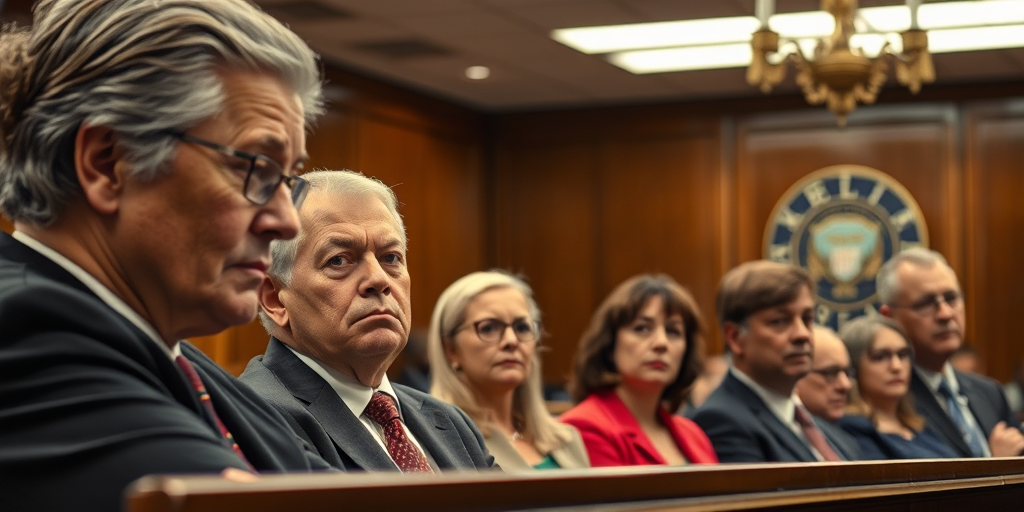Federal Court Nullifies EEOC Guidance on LGBTQ+ Protections
In a controversial move stirring nationwide debate, a federal court in Texas has vacated key components of the U.S. Equal Employment Opportunity Commission’s (EEOC) guidance on LGBTQ+ workplace protections. The U.S. District Court for the Northern District of Texas ruled that the EEOC exceeded its statutory authority with its 2024 guidance, which expanded Title VII’s prohibition on sex discrimination to cover sexual orientation and gender identity. This decision has drawn varying reactions, highlighting its potential implications for employers and LGBTQ+ individuals across the United States.
Historical Context and Judicial Reasoning
The court’s decision comes against the backdrop of the 2020 Supreme Court ruling in Bostock v. Clayton County, which clarified that Title VII of the Civil Rights Act prohibits employment discrimination based on sexual orientation or gender identity. However, the district court held that the EEOC’s 2024 guidance went beyond the scope addressed in Bostock, specifically in areas like bathroom access, dress codes, and pronoun usage.
The EEOC’s guidance was influenced by the U.S. Supreme Court’s interpretation in Bostock, which recognized that firing individuals for being homosexual or transgender inherently involves sex discrimination. Despite this, the federal court argued that the EEOC improperly expanded the definition of “sex” beyond its traditional legal understanding.
Influence of Executive Actions
Adding another layer to the issue, the decision was influenced by President Donald Trump’s Executive Order 14168. Issued in early 2025, the order mandated a binary definition of gender as male or female and directed federal agencies, including the EEOC, to align their policies accordingly.
This rollback of protections underlines a shift from previous interpretations of federal anti-discrimination laws, reflecting broader national debates on gender recognition and LGBTQ+ rights.
Community Impact and Employer Responsibilities
The nullification of EEOC guidance has immediate and complex implications for employers, particularly in states like Connecticut, where local policies historically have been more inclusive. In response to this ruling, legal experts urge businesses to continue adhering to the Bostock decision as a legal standard, despite its potentially limited application concerning facility usage and pronoun accommodations.
Legal analyst Nonnie Shivers of Ogletree Deakins emphasizes the importance of recognizing the varied interpretations of Bostock across different jurisdictions. “Employers need to be proactive in understanding both federal guidance and state-specific regulations to ensure comprehensive workplace protections,” she advises.
Employers in regions with robust anti-discrimination state laws, like Connecticut, are advised to align their harassment and workplace conduct policies accordingly, accommodating state protections alongside federal expectations.
CBIA’s Role in Community Resilience
In the face of shifting federal policies, organizations such as the Connecticut Business and Industry Association (CBIA) have demonstrated their commitment to regional economic growth and business support. Separate from legal rulings, CBIA’s recent involvement in energy procurement for local enterprises exemplifies pragmatic community engagement.
CBIA’s initiatives have led to significant cost savings for various businesses, including a Connecticut-based aerospace manufacturer and a large bakery franchise. By strategically negotiating energy contracts and uncovering financial oversights—such as missed tax exemptions—CBIA helped these companies reduce operational costs and stabilize expenses.
Such efforts not only bolster economic resilience but also underscore CBIA’s role in providing stability and support to enterprises navigating turbulent economic and regulatory waters.
Looking Ahead: Navigating Uncertainty
The federal court’s ruling on the EEOC guidance presents fresh uncertainties for employers trying to comply with an evolving patchwork of legal requirements. Employers are urged to review their policies to address potential risks of harassment, discrimination, and retaliation under varying state and federal laws.
Despite the court’s vacating of EEOC guidance, advocates highlight the ongoing necessity for inclusive practices to support LGBTQ+ employees effectively, regardless of regulatory setbacks.
Ultimately, ongoing dialogue, legal clarity, and community education remain critical in navigating the complexities introduced by this ruling. Those seeking further guidance are encouraged to consult local legal experts or the CBIA for resources and support.
By maintaining a focus on inclusive practices and regulatory compliance, businesses can ensure a balanced approach to workplace dignity and equity, fostering a community where diversity is embraced as a strength.







